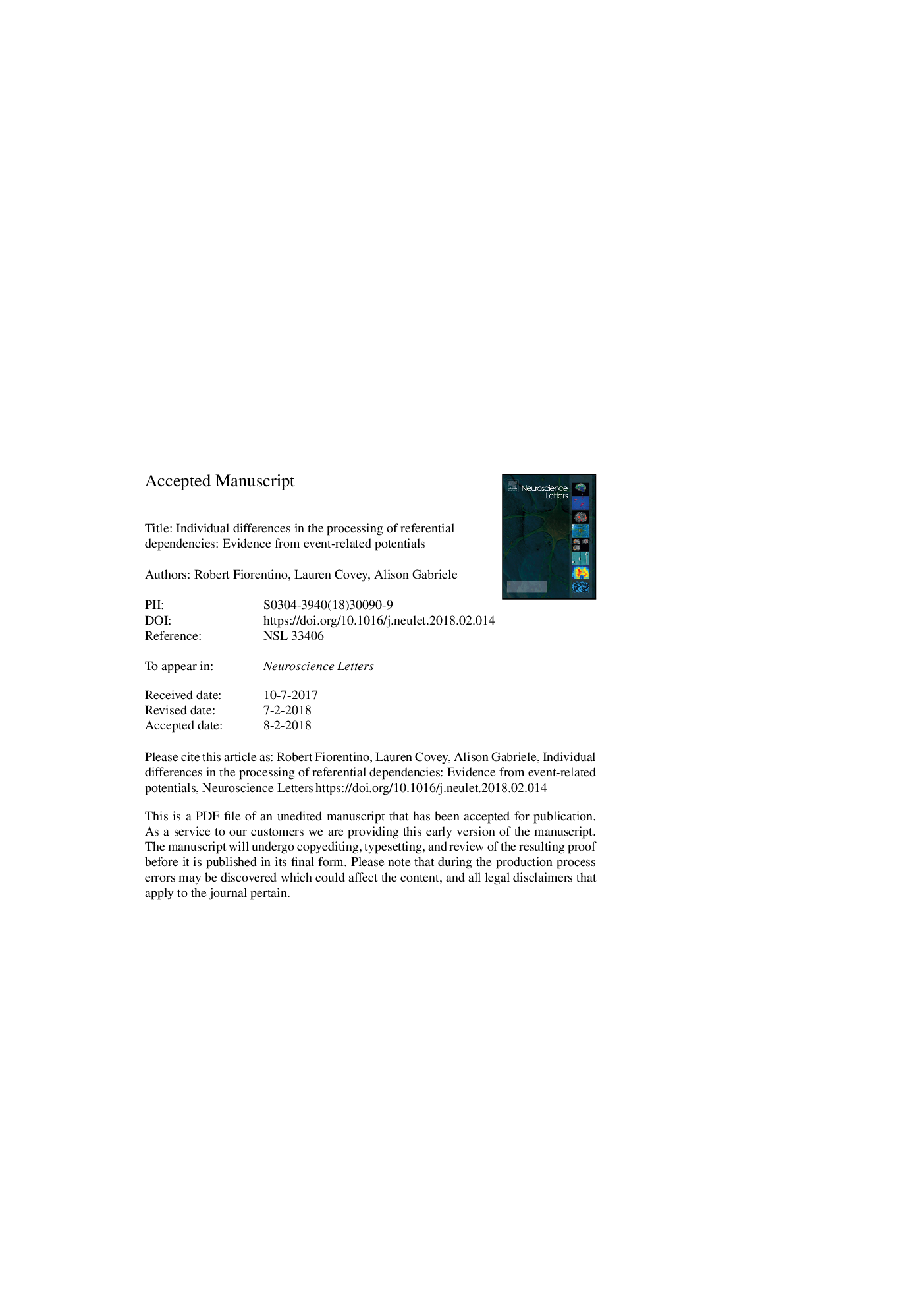| Article ID | Journal | Published Year | Pages | File Type |
|---|---|---|---|---|
| 8841592 | Neuroscience Letters | 2018 | 21 Pages |
Abstract
The present study examines the processing of referential ambiguity and referential failure using event-related potentials (ERPs). Participants read sentences with pronouns (he, she) which contained either one, two, or no potential gender-matching antecedents. Participants also took tests of working memory (Count Span/Reading Span) and attentional control (Number Stroop). In contexts of referential ambiguity with two potential gender-matching antecedents, two different responder types emerged, with some participants yielding a sustained negativity (Nref) and others a sustained positivity. For individuals who elicited Nref, the size of the effect was related to working memory such that higher Count Span scores were related to a larger Nref. For individuals who elicited a positivity, the effect was marginally related to attentional control such that better performance on the Stroop was related to a less positive, or increasingly negative-going ERP effect. Contexts of referential failure, with no gender-matching antecedents, yielded P600 for all participants, suggesting that participants may treat the failure of the pronoun to agree in gender with the antecedents as a violation despite the absence of an explicit acceptability judgment task.
Related Topics
Life Sciences
Neuroscience
Neuroscience (General)
Authors
Robert Fiorentino, Lauren Covey, Alison Gabriele,
